A Complete Guide On Parental Rights And Responsibilities
There is more to parenting than providing food and shelter for your child.
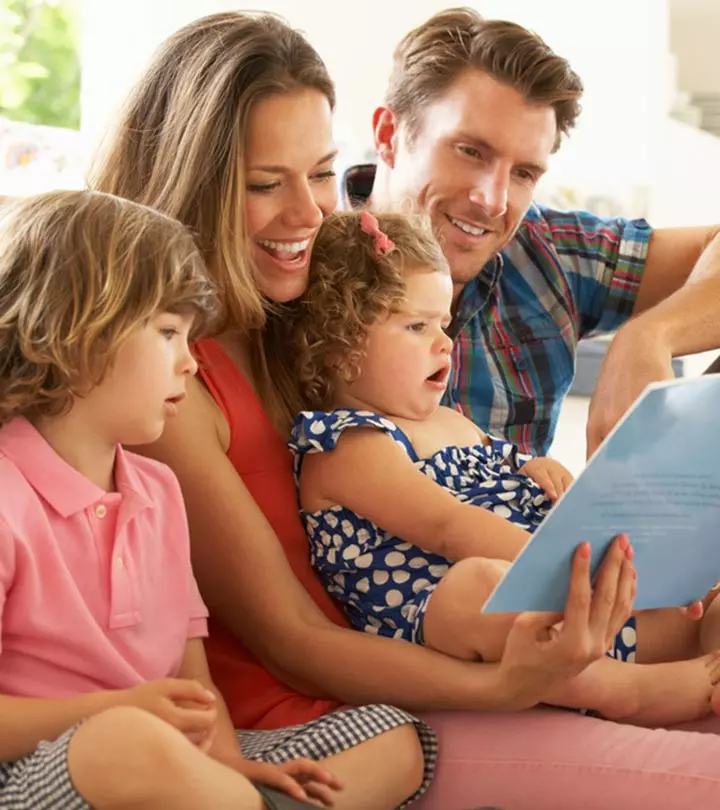
Image: Shutterstock
Making sure you know your parental rights and responsibilities will help you build a secure future for your children. Co-parenting can be overwhelmingly challenging sometimes. However, overlooking the well-being of one’s children can adversely affect their childhood. Lack of proper education for the child impacts their behavior and mindset. Children who are fully supported by their parents are more likely to flourish. In light of these facts, what are parents’ roles? Find out about parental rights and duties that you should be aware of.
In This Article
What Are Parental Rights And Responsibilities?
Parents have legal guardianship rights and responsibilities toward their children. Parents need to provide shelter, food, clothes, education, and medical care to their children until they are old enough to take care of themselves. Additionally, they also need to impart emotional and social nurturing so that their children can grow up to be responsible and empathetic individuals in society. Even if both the parents do not live together, depending on custodial arrangements and visitation rights, each party has to perform their duties for bringing up the children.
Before diving into a parent’s responsibilities, let’s look at who must take up these responsibilities. Is it only the biological parents who can exercise them? Not necessarily! Here are the people who can have parental responsibility towards their child.
Key Takeaways
- Knowing your parental rights and responsibilities can help build a successful and flourishing future for your children.
- Providing food and shelter, showing emotional support, and protecting your children from harm are some of the basic parental responsibilities.
- In case of separation or divorce, the court may grant sole or joint custody to the parents depending on the situation.
Who Has Parental Responsibility?
- Biological mothers and fathers inherently have parental responsibility.
- The parents whose names are on the child’s birth certificate.
- Adoptive parents or who become parents through surrogacy.
- The man who married the mother of the child.
- Anybody recognized as parents by the court
Read on to explore the parental responsibilities you should be aware of.
7 Parental Responsibilities
1. Fulfill Basic Needs

- Home: Parents should provide a safe, abuse-free environment where your child feels protected. If your child is a few months or 1-4 years old, the house should be baby-proofed to prevent harm from sharp objects or glass. The parents should make sure that the neighborhood is child-friendly and not dangerous.
- Food: Parents need to provide sustenance for their children – healthy meals like fruits, vegetables, and greens. They need to make sure their children have access to clean and pure drinking water. Keep alcohol and other non-ingestible products away from the children.
- Clothing: Another basic need for children is clothing. This does not mean parents have to splurge on designer clothes. But make sure your children have proper and decent garments to represent themselves well.
- Hygiene: The parents must teach their children the importance of hygiene. Make them have a bath daily, brush their teeth, clean themselves, and change their clothes regularly. Teach them washroom habits, how to wash their clothes, put trash in the bin, and keep things clean.
2. Support Every Possible Way
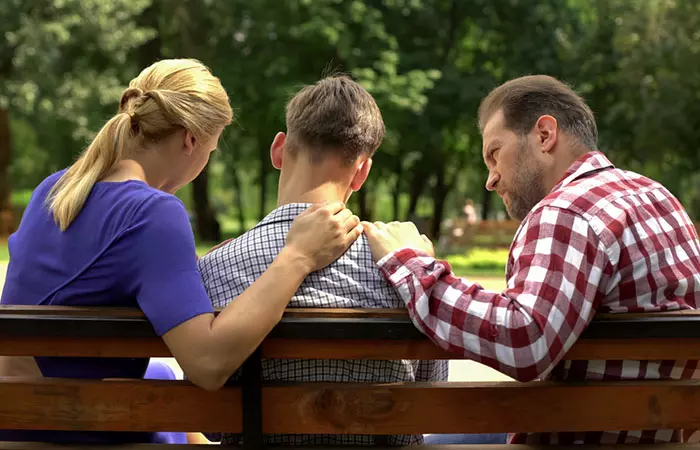
- Financial And Educational Support: Parents need to provide financial support for the education of their children. This could also include extracurricular activities such as sports, clubs, and other interests. They have to enroll their children in school and bear the cost until they finish their college education.
- Emotional Support: Parents need to be there for their children emotionally. They need to inspire them to do better and support their hobbies. Show them ways to manage their emotions and treat others with kindness and respect. Encourage your child to participate in extracurricular activities and show up when your child is performing somewhere. Give them words of encouragement and do not belittle their hopes and dreams.
- Medical Support: Parents must provide medical care to their children. They need to take them for regular checkups and support them financially for treatments or medication.
3. Teach Moral Values
It is important to inculcate moral values in your kids from a young age.
They need to know how to interact with others and behave in the right way. Parents need to teach their kids compassion, respect, kindness, patience, and honesty. Children should be educated properly so they do not harm other children or animals.
4. Protect The Child
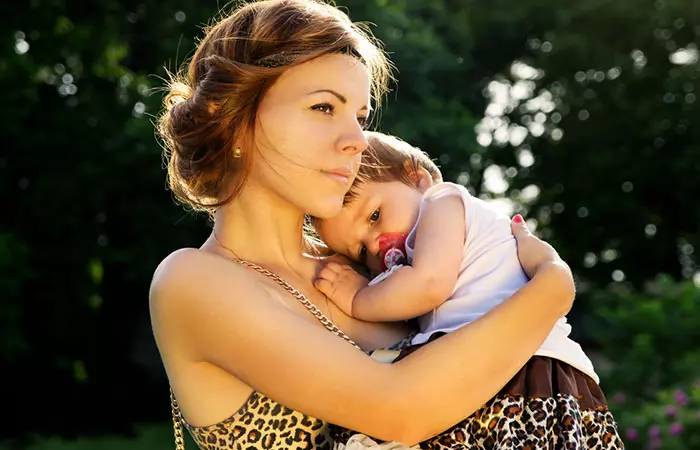
Your children need to know who they can talk to and whom they cannot. They must know they cannot speak to strangers or take candy from them. Parents must teach their children what inappropriate touching is. They need to build a safe atmosphere so that the children can be open about all issues. If you have a regular babysitter or nanny, check up on your kids to protect them from harm or abuse. Fostering open communication about safety is crucial. Regular discussions about personal boundaries and safe practices make children understand their rights and recognize potentially harmful situations.
5. Respect The Child
Do not talk to your child like they are dumb. Children are smart, and they understand things better than we give them credit for. You have to earn your child’s respect, and they have to earn yours. Listen to your child when they try to tell you something. Never belittle their opinions. Parental alienation is a serious issue that can arise in child custody cases, where one parent attempts to turn the child against the other parent. How you treat your child is what they remember about you, and in turn, will treat others the same way.
6. Teach Them Discipline
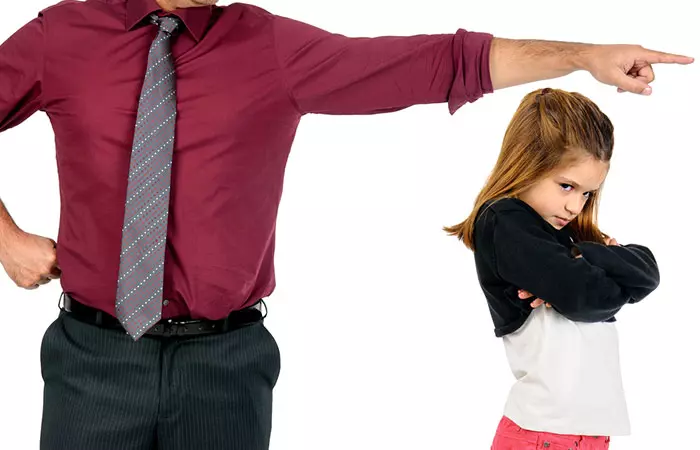
When you discipline your child, make sure not to abuse them physically, verbally, or emotionally. Do not hit your child or yell obscenities at them. Do not make fun of your child for crying and being emotional. Instead, you can do the following –
- Talk to your child firmly, letting them know that they have done something wrong.
- Punishments can be taking away TV time or grounding them to their room.
- Discuss with your child why they are punished and also hear them out.
- Always be level-headed when talking to your child. Do not let your emotions drive you. How you behave with your child is how they will behave with others.
7. Spend Time Together

Your child needs to have you present in their lives. Entertaining your child with materialistic things does not indicate you love them. Being there for them in every circumstance shows your love. Unfortunately, some parents may engage in manipulative behaviors. For example, gaslighting parents distort reality to undermine their children’s confidence and sense of self.
Take your child out once a week and do something they love. Build a hobby with your child. Your kid needs to realize that they can always come to you for help, support, or advice whatever they are going through.
 Quick Tip
Quick TipHowever, things are handled a little differently in cases where the parents are divorced or separated.
Parental Responsibility In Divorce Or Separation
In divorce or separation, where a child is involved, the court decides if both parents get joint custody or a single parent gets sole custody. If a single parent gets custody, the court decides the other parent’s visitation rights and child support. However, any major decision concerning the child needs to be taken by both parents.
Amy J. Ko, a professor at the University of Washington Information School, shares her experience of being divorced and having to share custody of her daughter. She writes, “I ended up being financial and emotional support for our daughter, listening, problem solving, and writing the big checks (i).” She continues, “This wasn’t at all fair: I always felt like my ex was doing too much, and I wasn’t doing enough, and that resentment was inevitable.”
 Quick Tip
Quick TipWhile judges decide on whom the custodial rights fall on after a divorce, the scenario is different in Florida.
Florida Parental Responsibility And Child Custody
Under the Florida Parental Responsibility, both parents retain their full parental rights in the child custody agreement. Understanding child custody laws is important for both parents, as it can have a significant impact on their relationship with their children. The shared parenting responsibilities are
- Moral and religious beliefs of your child
- Disciplinary actions
- Medical care for the child
- Extracurricular activities
- Legal activities concerning the child
- Access to school records
- Changes to the child’s living or social environment.
When it comes to child custody arrangements, two primary terms often come into play: physical custody and legal custody. Let’s break down what these mean.
Specific Parental Rights
Physical Custody
Physical custody refers to a parent’s right to have their child reside with them. One parent is granted sole physical custody only in exceptional cases where the other parent is deemed unfit. More commonly, parents either share physical custody evenly or have the child reside primarily with one parent.
Legal Custody
Legal custody, distinct from physical custody, pertains to a parent’s authority to make significant decisions regarding their child’s upbringing. This encompasses choices about the child’s education, healthcare, religious upbringing, and other important aspects of their life. Legal custody rights may be awarded to one or both parents, depending on what is most advantageous for the child.
Infographic: Books That Help You Fulfill Your Parenting Responsibilities
Merely knowing what your parenting responsibilities are is never enough. You must also make parenting plans to be able to build a happy home and raise strong children. To help you with that, we have compiled a list of some amazing parenting books in the infographic below that would surely come in handy when you have a child to take care of. Check it out! Illustration: StyleCraze Design Team
A nurturing and compassionate environment fosters the health and development of children. Strained relationships may lead to situations where grown children who ignore their parents and do not have healthier family bonds. Therefore, it is essential to raise your child with attention and affection. Follow these parental rights and responsibilities to ensure you leave no stone unturned in building the best future for your child in their formative years. The manners and morals you convey during your child’s upbringing will be reflected in how they treat others in the future. So, devote special time with the kids to ensure you can give them the best care possible. Actively support, encourage, and protect your children, as it will help them grow profoundly.
Frequently Asked Questions
How can parents modify existing custody agreements?
Parents can request modifications in the custody agreements if there are big changes, like relocation, changes in income, or the child’s needs. This usually requires filing a petition with the court that issued the original order.
What is the difference between parental rights and parental responsibility?
Parental rights mean the ability and right of a parent to be a part of the child’s life, while parental responsibility refers to the duties toward the child.
Are fathers entitled to 50/50 custody?
As a parent, the father gets 50/50 custody of the child unless a court says otherwise.
What is proof of parental responsibility?
A parental responsibility agreement can be signed as proof.
How does a father lose parental responsibility?
A father can lose parental responsibility in rare and exceptional circumstances when it is thought to be in the child’s best interests.
Do you have to go to court to get parental responsibility?
Yes, if you are not the biological parent of the child, you need to go to court to get parental responsibility.
Illustration: A Complete Guide On Parental Rights And Responsibilities
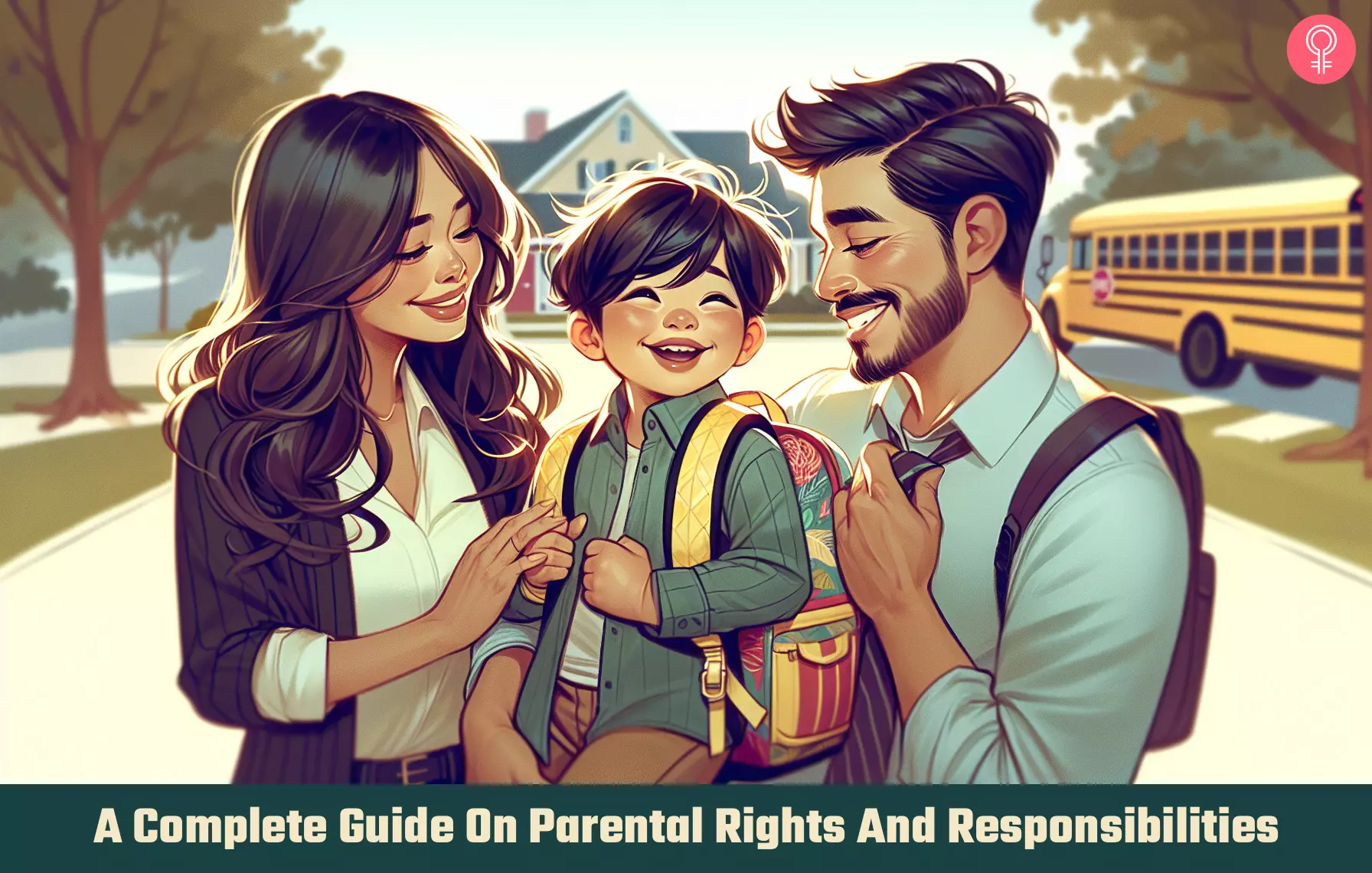
Image: Stable Diffusion/StyleCraze Design Team
Explore the rights and responsibilities that come with being a parent, empowering you to make better choices for your family’s future. Check out the video!
Personal Experience: Source
StyleCraze's articles are interwoven with authentic personal narratives that provide depth and resonance to our content. Below are the sources of the personal accounts referenced in this article.
i. My parenting past and presenthttps://amyjko.medium.com/my-parenting-past-and-present-bf09f9956153
Read full bio of Michele Waldron
Read full bio of Sneha Tete
Read full bio of Asmita De
Read full bio of Reshma Latif





















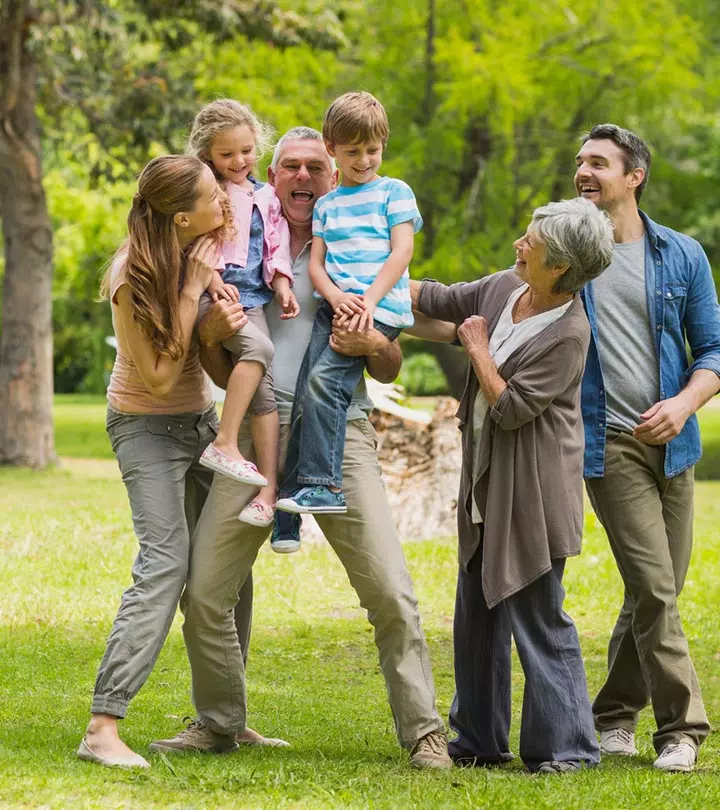





Community Experiences
Join the conversation and become a part of our empowering community! Share your stories, experiences, and insights to connect with other beauty, lifestyle, and health enthusiasts.